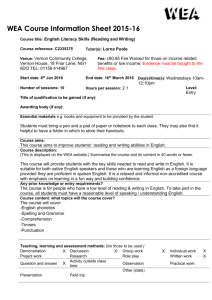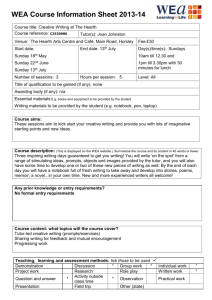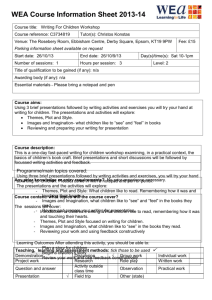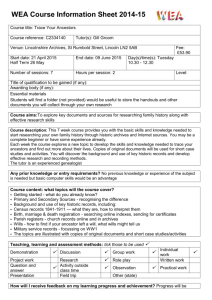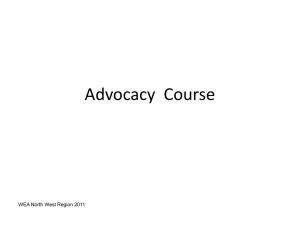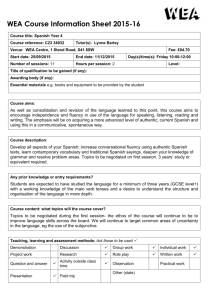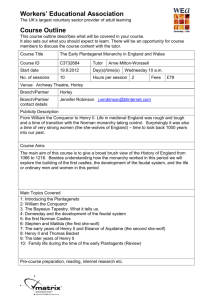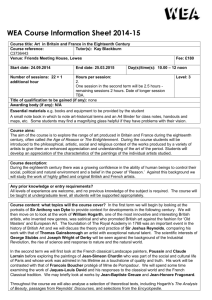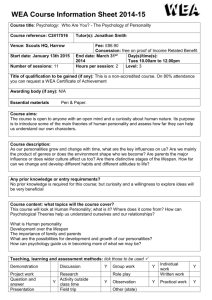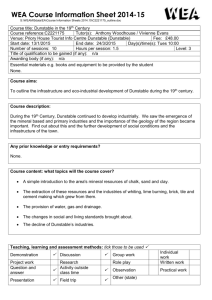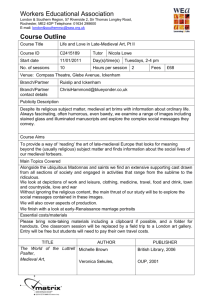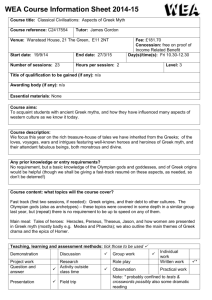Here are his slides.
advertisement
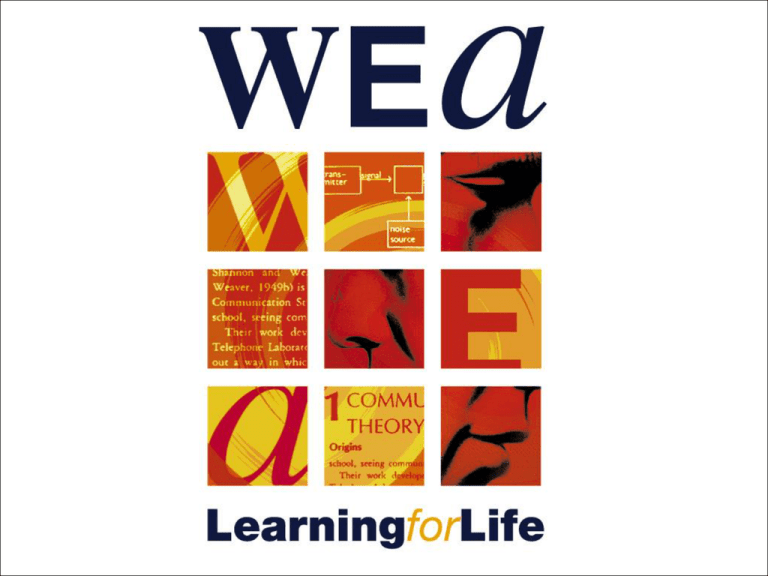
The Social Purpose Direction of the WEA Thinking it through the four themes The vision • "A better world - equal, democratic and just; through adult education the WEA challenges and inspires individuals, communities and society" What are we meaning by social purpose? • Understanding what society is like now, how it came to be as it is and how it might be changed • Equipping students to change society; learn to think 'responsibly' - stand by the results of their thinking in action as well as in argument • Doing this through the subjects we teach now not inventing a whole new curriculum Nothing new in this world • Social Purpose Education – “education which helps students to understand the society in which they live and to change it in ways which seem to them desirable” • S.G. Raybould, Education for Social Purpose (published in The WEA: The next phase, 1949, WEA London) Social not individual • “Man is by nature a social animal; an individual who is unsocial naturally and not accidentally is either beneath our notice or more than human. Society is something that precedes the individual. Anyone who either cannot lead the common life or is so selfsufficient as not to need to, and therefore does not partake of society, is either a beast or a god. ” Aristotle Learning socially • Knowledge is generated socially. • Much of our notions of self, of other and of the world are socially constructed • Of course we all find out things individually • But we understand better, build our narratives, through interaction, discussion and dialogue • It is why classrooms work. • It is why the WEA wants to use our classrooms to critically evaluate the stories of our lives Acting Socially • WEA seeks to encourage students – To learn to know • But also and crucially – To Learn to do • Taking action to improve our communities and our society • Encouraging this through small bite size action that the class undertakes as a result of their new studies and understandings A Critical and Active Teaching & Learning framework • Discover – Active Research for students in every course • Connect – – – – Contextualising Social, cultural, political, geographical Power interests Alternative views • Act – Learning by doing – Actions arising from the course outside the safety of the classroom • Contemplate (Reflect) – Reviewing, planning & re-starting the process The Themes • • • • • Community empowerment Employability Health and Wellbeing Culture How do we use them to develop social purpose? Community Empowerment • Photography course that records the local community and records it on the local centre website. • Community arts that build a mural, an exhibition or an installation • Healthy eating that provides a community based day of meals on wheels from their produce • Gardening that re-presents a rundown public space • Cake decorating that raises environmental protection of the bees • Wedding Art that produces a voluntary group supporting community weddings Employability • Voluntary sector business • Education for jobs as well as for learning • From community need to community led Social and employability skills from answering a community need • Re-building skills from arts and crafts, practical courses, IT & Social Media • Social enterprise & Coops Health and Wellbeing • Community Health Matters or Mental health matters – Health activists at community level • Healthy eating on a budget – Good food costs more –why and how do we respond • Counselling – Why do we individualise our problems • Exercise and food – Growing health inequalities Culture • History is our own and all around us. Recording our past • Re-creating our music and our lives (Sound tracks and soundscapes) • Understanding our world through Victorian literature • Making & displaying our own art • The beautiful game How • Starting the Discussion • Using the hooks in your subject • Understanding what’s happening around us • Words, Pictures, Photos, video, Art Works, Garments, Food, Languages spoken, Music, Buildings, Religion • Finding things out • Surveys, Interviews, Statistics, Graphs, • Students doing research and reporting back their findings • Active not passive learning – Letting students talk not teachers – Activities not lectures • Linking threads together – Questioning culture & discussion – Student homework, discovery and presentation • Tutors finding and bringing in relevant and stretching information – Setting challenging contexts Having a purpose in life • The course is not just about the student as an individual • It is not about You • Using the course work to do something not nothing • A small Community Project • Great learning experiences and great confidence boosters Developing Popular learning at a higher level • Higher and academic education has in recent years become the preserve of the young or wealthy • A need to encourage higher learning in our courses • Taylor made progression for a proportion of our students • Helping them to achieve understanding at a higher level For What • Critical Socially Aware students who feel confident to take an active role in changing communities • In the process they change themselves, their families and their world. • Great learning opportunities that transform • Learning for a social purpose
